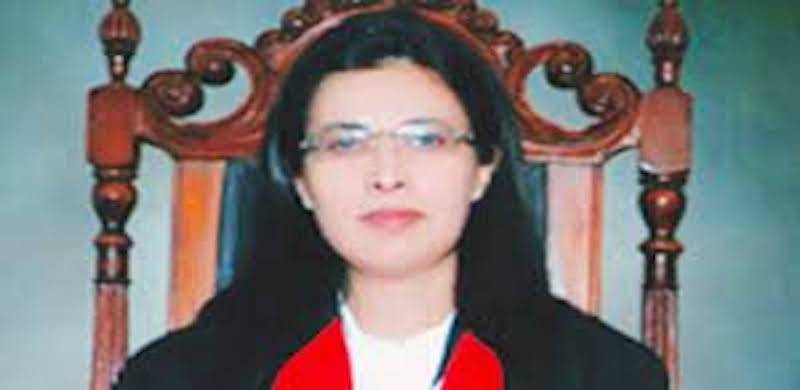
The Judicial Commission of Pakistan (JCP) has not approved the nomination of Justice Ayesha Malik as a Supreme Court (SC) judge. Justice Ayesha would have been the first female judge of the apex court if she had been elevated by the SJC.
The judge's nomination was celebrated as a step towards women empowerment as it would pave the way for more women judges in Pakistan's top court -- which has so far seen no female judge. The nomination had however also generated debate around the seniority principle in judicial appointments, with many legal voices arguing that seniority must be maintained.
But in its latest decision, the JCP has decided not to elevate Justice Ayesha to the SC.
Justice Ayesha's work for gender equality
In January, Justice Ayesha Malik issued a landmark judgement declaring the controversial ‘two finger’ virginity test for rape survivors illegal.
The verdict had noted that Medical forensic examination report should use appropriate language to describe the victim and her state and should totally restrain from commenting as to whether or not rape or sexual abuse has taken place. “The damage caused by such comments and use of words describing the woman as habituated to sex or regularly involved in sexual intercourse can have far reaching effects on the victim socially as well as mentally and personally,” it said.
As a lawyer, Justice Ayesha often represented NGOs working for poverty alleviation, microfinance programmes and skills development initiatives pro bono. She also authored various publications. These include the ‘Journal of World Investment’, the ’12th edition of the Global Report 2004 on the Independence of the Judiciary-Pakistan Chapter’ and ‘Pakistan Secular Laws’.
She was also involved in the ‘Merger Control’, ‘Getting the Deal Through’ and ‘Regulation Global Competitive Review’.
The judge's nomination was celebrated as a step towards women empowerment as it would pave the way for more women judges in Pakistan's top court -- which has so far seen no female judge. The nomination had however also generated debate around the seniority principle in judicial appointments, with many legal voices arguing that seniority must be maintained.
But in its latest decision, the JCP has decided not to elevate Justice Ayesha to the SC.
Justice Ayesha's work for gender equality
In January, Justice Ayesha Malik issued a landmark judgement declaring the controversial ‘two finger’ virginity test for rape survivors illegal.
The verdict had noted that Medical forensic examination report should use appropriate language to describe the victim and her state and should totally restrain from commenting as to whether or not rape or sexual abuse has taken place. “The damage caused by such comments and use of words describing the woman as habituated to sex or regularly involved in sexual intercourse can have far reaching effects on the victim socially as well as mentally and personally,” it said.
As a lawyer, Justice Ayesha often represented NGOs working for poverty alleviation, microfinance programmes and skills development initiatives pro bono. She also authored various publications. These include the ‘Journal of World Investment’, the ’12th edition of the Global Report 2004 on the Independence of the Judiciary-Pakistan Chapter’ and ‘Pakistan Secular Laws’.
She was also involved in the ‘Merger Control’, ‘Getting the Deal Through’ and ‘Regulation Global Competitive Review’.

